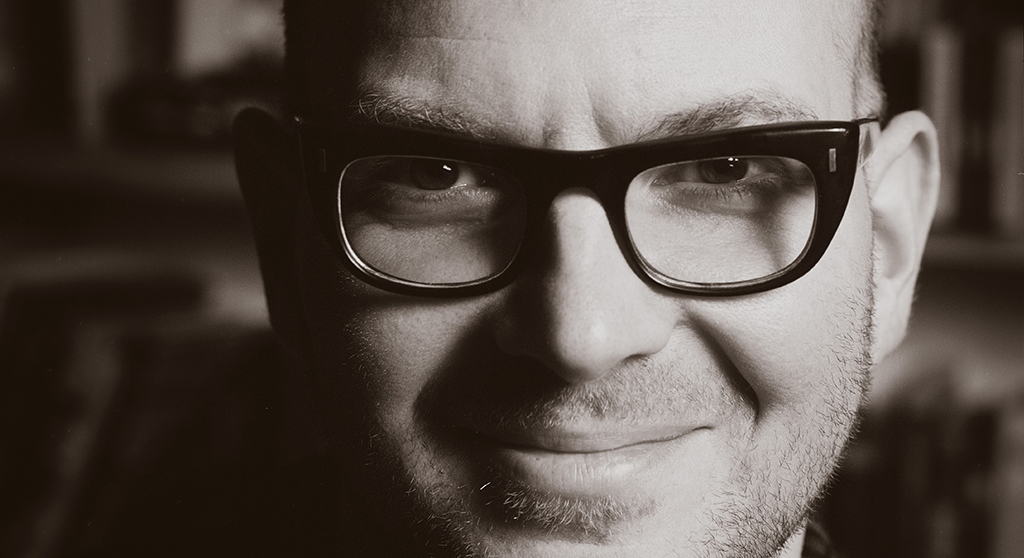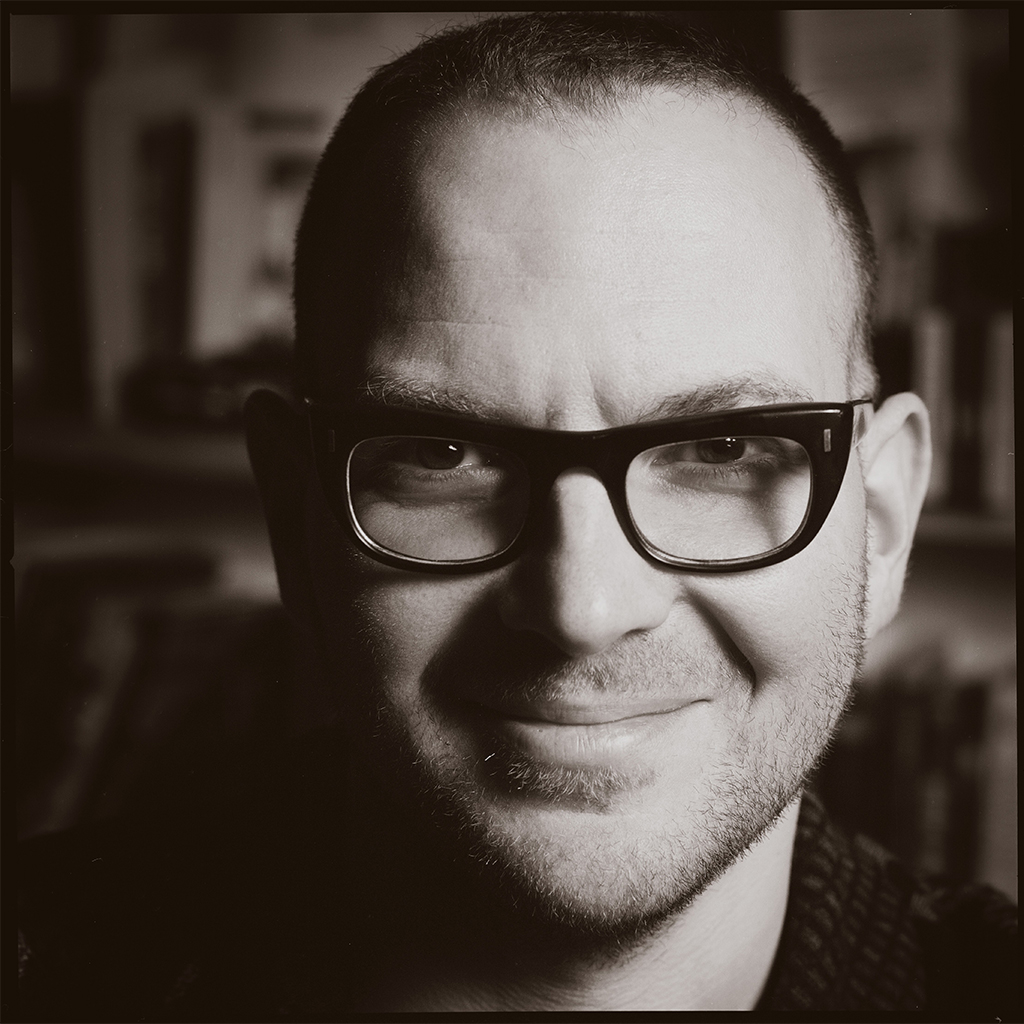Cory Doctorow
Cory Doctorow reads from his “Enshittification” on Oct. 7 at The Brattle Theater in Cambridge.
Writer, activist and journalist Cory Doctorow coined the term “enshittification” as a means of explaining the state of the digital world (or the “Enshitternet”) and how it came to be. In his new book “Enshittification: Why Everything Suddenly Got Worse and What to Do About It,” Doctorow details the policy choices that brought the Internet to what it is today, and how organizing and joining a movement is our path forward. We spoke with Doctorow ahead of his appearance Oct. 7 in Cambridge. This interview has been edited for length and clarity.
![]()
Where does the term “enshittification” come from?
I have worked for this nonprofit digital human rights group called the Electronic Frontier Foundation for most of my adult life, about 24 years. We try to make sure that the human rights we enjoy in the offline world make their way onto the digital world – but these days we spend a lot of time worrying about the digital world not eroding our human rights in the real world. For all that time, I’ve been trying to come up with ways to communicate the urgency and salience of these issues, but of course they’re very abstract, and difficult to wrap your head around. By the time they feel immediate to people, it’s usually because something really bad has happened in their life, and I would like people to get exercised about it and do something about it before that happens. I’ve always had lots of different ways of talking about this stuff; one day I just came up with this very little word, and suddenly people were interested in hearing about the whole critique. Something about the minor license to be a bit vulgar was the thing that opened the door to a much more thoughtful and retracted discussion of these tech policy and economic issues.
How can we understand enshittification?
Enshittification observes a pattern in the world of platform decay, how the platforms that we rely on go bad, and it posits a thesis for why it’s all happening now and why it’s so hard for us to leave these platforms even if they’re getting worse. Finally, it proposes a remedy, a set of things we can do to make things better. The pattern is that the platforms lure end users in but they also lock them in, and once those end-users are locked in they turn the screws on those end users, they make things worse for those end users – not out of sadism, but to make things better for the business customers. And once the business customers are lured in, they get locked in too, and then the company is bad to those business customers as well. They withdraw all the available value, give it to the shareholders and executives, and leave behind just the smallest amount that is needed to keep users locked to the platform and business customers locked to those users. They turn it into a pile of shit.
The reason all of this is happening now is that there used to be forces that punished companies when they engaged in this kind of bad behavior. They used to have to worry about competitors and worry about regulators. Their workers were quite strong, and a lot of tech workers believed in making technology a force for good in the user’s lives, and because they were so hard to replace and they were so valuable to companies, that opinion carried a lot of weight.
We also have this incredible force that’s intrinsic to digital technology called interoperability, which is the process of making one thing work with something else. Whenever a company does something that’s antithetical to your interests, whether that’s locking your mechanic out of the computer in your car so you have to take it to the dealer or locking your printer so it won’t take generic ink, or locking out the third-party app store for your iPhone or your games console, or just spying on you with a device that you use and own – it’s always possible to get another program that will undo that bad program. What happened over the last couple of decades is that we deliberately, through policy decisions, eliminated all these forces of discipline. We attacked them.
What we ended up with was a regime in which when platforms do the wrong thing, they get richer, not poorer. There’s a very predictable outcome to this: If you let platforms get richer by doing bad things, they’ll do more of the bad thing. That’s how we got here, and it’s why it’s so hard to leave. Because the platforms lock us in, they buy their competitors so there’s nowhere else to go, they capture the regulators so they don’t get punished, and the workers can’t help us with new technology because intellectual property law has expanded and expanded to make it impossible to make these interoperable technologies that were once so commonplace. As a result, we find ourselves with the Enshitternet, this bad Internet that is the progeny of the old, good Internet.
My hope is that if we restore these forces, if we can restore competition, make regulators harder to capture, unionize tech workers so that they have the power again and change the IP laws so we can make new, interoperable technologies, we can turn the Enshitternet into a kind of unfortunate, intermediate stage. Instead of the old, good Internet that we used to have, we can have a new, good Internet that we really deserve.
What is the impact of the “Enshitternet” on the physical world?
These institutional failures, which arise out of market capture, which arise out of monopoly, really do distort our lives, but in a material sense. Regulatory capture means that we don’t have a real privacy law to speak of. The last time congress updated consumer privacy law was in 1988 – that was when Ronald Reagan signed the Video Privacy Protection Act, a law that prevents video stores from divulging your VHS rental habits. The fact that we haven’t had any new privacy laws since “Die Hard” was in theaters means that it’s kind of open season for spying on you, and that surveillance data can be used to hurt you in lots of ways.
What would a more just digital world look like?
We’re never going to perfect the tech world. I don’t think we have to come up with a kind of technology founder who is incorruptible and never makes their service worse. All we need to do is make it so that if you make your service worse, you face penalties – and if you ignore those penalties, you go out of business and people can go somewhere else.
What is the main takeaway here?
That the reason the Internet sucks now is not the great impersonal forces of history or the iron laws of economics; it’s policy choices. The decisions not to enforce antitrust laws, to weaken unions, to increase IP law to block out interoperable technology, to allow for regulatory capture – those policy choices created the enshittogenic environment in which the worst people at these companies won the argument every time there was a product design argument, and we got the Enshitternet out of it. You’re not going to change this by shopping harder, by being a more conscious consumer. You’re going to change this by joining a movement to disenshittify our policy environment.
Cory Doctorow reads from “Enshittification: Why Everything Suddenly Got Worse and What to Do About It” at 6 p.m. Oct. 7 at The Brattle Theatre, 40 Brattle St., Harvard Square, Cambridge. Randall Munroe, creator of the cartoon “xkcd,” joins. $10, or $35 with the book.


